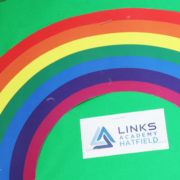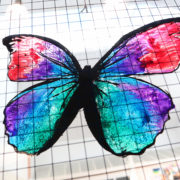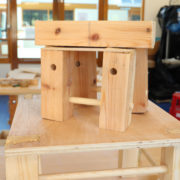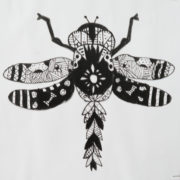Links Academy Hatfield recognises the importance of educating young people to be fully rounded human beings that are socially, respectfully and emotionally resilient as well as academically responsible. For us, character is about creating a set of personal traits that produce specific moral emotions, guide social interaction and inform academic aptitude.
Character education includes all explicit and implicit educational activities that help students to develop positive personal strengths. We endeavour to make sure that our students have as many opportunities afforded to them as possible to help them grow their cultural capital and flourish as a part of wider society. Too often after attending an alternative provision, a student’s experiences will narrow their life chances. We feel it is our job to keep these opportunities broad and wide ranging.
“Students need to decide wisely the kind of person they wish to become and to learn to choose between already existing alternatives or to find new ones. In this process, the ultimate aim of character education is the development of good sense, or practical wisdom; the capacity to choose intelligently between alternatives. This capacity involves knowing how to choose the right course of action in difficult situations and it arises gradually out of the experience of making choices and the growth of ethical insight.” A Framework for Character Education in Schools
Our vision at Links Academy Hatfield is to enable students to flourish in all areas of their lives, by supporting their development into well-rounded, empathetic beings who are able to contribute to and shape society and the wider world, whilst respecting and supporting those who live in it, though the teaching and modeling of good character.
Character education at Links Academy Hatfield is all-encompassing and is at the heart of everything we do – all areas of the curriculum and personal development opportunities that the students receive. We take character education seriously and we believe it is fundamental to the development of our students.
We integrate the following three ‘Rs’ into everything we do:
Respect
Social Behaviours – Civil/Moral Virtues
- Character traits that are necessary for engaged responsible citizenship, contributing to the common good
- Character traits that enable us to act well in situations that require an ethical response
We work with our students to build their social skills and create a character that will enable them to be compassionate and empathetic. We want to create an inclusive and kind environment where everyone is welcome. We use the following statements on our green cards for students to understand how we want them to think about Respect in their learning:
- We understand that other people have feelings too
- We respect that people may feel differently to us
- We are respectful of others right to learn in a safe environment
Resilience
Emotional Behaviours – Performance Virtues
- Character traits that have an instrumental value in enabling the intellectual, moral and civic virtues
We work with our students to build their emotional resilience helping them to become better at self regulation. We want our young people to be confident and determined in their interactions with the world, able to build good relationships and work well in a team environment. We use the following statements on our green cards for students to understand how we want them to think about Resilience in their learning:
- We regulate our emotions and work on coping strategies
- We understand that mistakes are a necessary part of learning
- We pick ourselves up when things don’t go our way
Responsibility
Academic Behaviours – Intellectual Virtues
- Character traits necessary for discernment, right action and the pursuit of knowledge, truth and understanding
We work with our students to build their curiosity for learning. We want them to be able to make sound and reasoned judgements, be resourceful and logical in how they approach their learning. We use the following statements on our green cards for students to understand how we want them to think about Responsibility in their learning:
- We are responsible for making positive learning choices
- We own our successes and our failures
- We are curious and reflective about our learning journey
Phronesis “Good Sense”Practical wisdom is the integrative virtue, developed through experience and critical reflection, which enables us to perceive, know, desire and act with good sense. This includes discerning, deliberative action in situations where virtues collide. |






